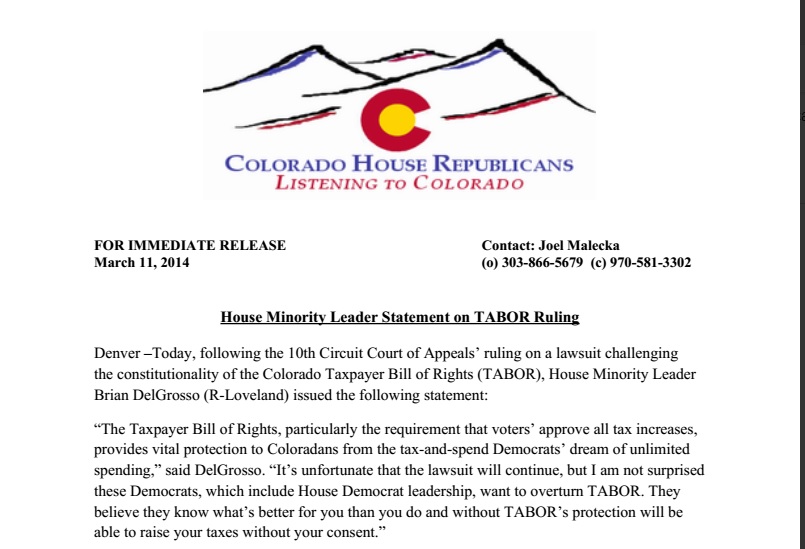Colorado lawmakers on the Joint Budget Committee expressed frustration Wednesday that even though the state’s voters approved taxes on retail marijuana sales as required under the Taxpayer’s Bill of rights, some of that revenue might have to be refunded under TABOR if more taxes are collected than officials estimated.
JBC staff delivered a 100-page report to legislators outlining most of the scenarios that could occur of if the state collects more than the official $67 million estimate for the first full fiscal year of recreational pot sales, from July 1, 2014, through June 30, 2015.
That estimate was given to voters in the official voters pamphlet — known as the Blue Book — last fall, which explained Proposition AA, the new taxes established for retail marijuana sales. That booklet estimated likely revenue from new pot taxes at $67 million in the first full year. (The ballot language itself pegged predicted tax revenue at $70 million.)
Most current estimates, however, show the state will likely collect far more than $67 million.
The report outlines three courses of action:
– Wait to see how much tax is collected, then ask voters to let the state keep any excesses;
– Send a refund of any taxes collected above the estimate; or,
– Attempt to reduce the 15 percent excise tax on wholesale sales and 10 percent special sales tax in order to keep the amounts collected under $67 million.
“This is a bizarre result that we’d have to refund all that tax money just because what we asked for [was an estimate] in a year when this is going to be a growing industry,” said JBC Vice Chairman Sen. Pat Steadman, D-Denver, at a meeting of the budget panel Wednesday.
“It’s been the will of the people who passed TABOR,” said JBC Chairwoman Rep. Crisanta Duran, D-Denver. Continue reading





